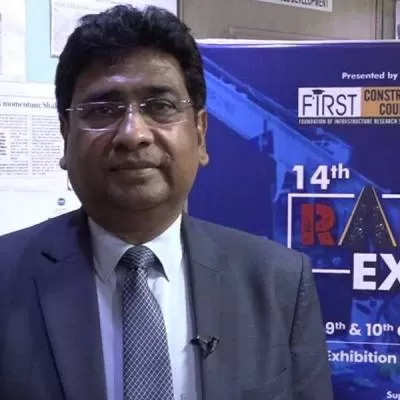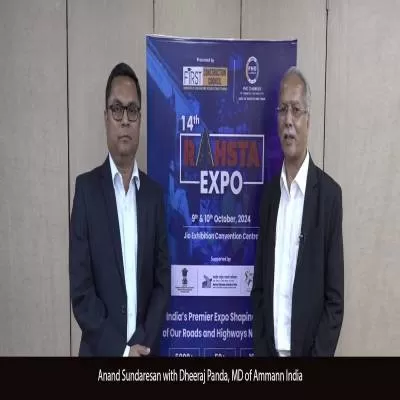- Home
- Real Estate
- India Economic Summit 2010
India Economic Summit 2010
The World Economic Forum’s India Economic Summit 2010 revealed India’s quest for inclusive growth providing a test-bed for global sustainability.
"India is arguably one of the most innovative places for testing and rolling out these new models,” said Robert Greenhill, Managing Director and Chief Business Officer of the World Economic Forum, at the close of the three-day India Economic Summit. We look at some of the key topics deliberated at the forum organised in Delhi from November 14 to 16, 2010.
Key highlights
India’s remarkable economic growth has put it on track to become one of the world’s largest three economies and given it the resources to tackle poverty and bottlenecks to more inclusive growth. But despite having side-stepped the global economic crisis, numerous panelists pointed out that much of the nation’s poor rural sector has been largely left behind, not only contributing to rapid urban migration but also creating a potential source of political and social instability.
Addressing the aforementioned issue, the panelists laid special emphasis on the importance of public-private partnerships. “If we keep moving forward, we can create stable livelihoods in rural areas,” said Arvind Mayaram, Additional Secretary and Financial Adviser, Ministry of Rural Development of India. “The government needs to create a healthy environment for entrepreneurship. I believe in the power of entrepreneurship and in giving people economic freedom,” said Sriram Raghavan, Chief Executive Officer, Comat Technologies, India. With a series of partnerships already being rolled out across the country, it is expected that around 250,000 villages will be connected to broadband by 2012.
The government’s reconsideration of policies on GMOs (genetically modified organisms) in the event of unleashing India’s agricultural potential was also highlighted. “Subsistence farmers need to get to a profitable level. The issues are technology and business models. We need to understand the science and create a framework for genetic modification,” commented Ellen Kullman, Chair of the Board and Chief Executive Officer, DuPont, USA and a Summit co-chair.
Growing awareness
Corruption and poor governance remain a key drag on growth: while corruption imposes a disproportionately high toll on poor parts of the country. Thankfully, India’s development has heightened the public’s awareness of corruption and emboldened it to demand accountability. New regulations are forcing officials and executives to become more transparent.
Coping with urban poverty
Most recommendations on achieving inclusive growth are concentrated at the grassroots level. Education in particular remains a top priority - imparting vocational skills and providing graduates with the kind of knowledge that employers need. “We need to have education at every level,” said Ajit Gulabchand, Chairman and Managing Director of the Hindustan Construction Company and another Summit co-chair.
Water pricing, women’s rights and urbanisation also remain key issues in coping with rural poverty. But solving these problems will require the active involvement of the private sector, not only in providing governments with ideas and processes, but also with providing new products and job opportunities for poor communities.
This will require that companies fundamentally shift the way they approach the rural poor and, as late CK Prahalad wrote, tap the fortune at the bottom of the pyramid. Rather than a form of charity or corporate social responsibility, companies have to see lower-income communities as a new and untapped market where the right products can not only earn profits, but also help vault the poor into the economic mainstream.
“Ultimately, a problem like this calls for a new model of collaboration, of cooperation between the private sector and the public sector,” said Dennis Nally, Chairman of Price Waterhouse Coopers International.
Surely India is a work in progress and inclusive growth is the mantra! And as Hari S. Bhartia, Co-Chairman and Managing Director of the Jubilant Bhartia Group and President of the Confederation of Indian Industry, says, “We want to share what we are doing in inclusiveness and learn from others.”
- Construction
- Update
- Portal
- Magazine
- World
- December
- 2010
- India
- World Economic Forum
- India Economic Summit
- Robert Greenhill
- Delhi
- Arvind Mayaram
- entrepreneurship
- Sriram Raghavan
- Comat Technologies
- GMOs
- Ellen Kullman
- DuPont
- USA
- governance
- Education
- Ajit Gulabchand
- Hindustan Construction Company
- CK Prahalad
- Dennis Nally
- Price Waterhouse Coopers International
- Hari S. Bhartia
- Jubilant Bhartia Group
The World Economic Forum’s India Economic Summit 2010 revealed India’s quest for inclusive growth providing a test-bed for global sustainability. India is arguably one of the most innovative places for testing and rolling out these new models,” said Robert Greenhill, Managing Director and Chief Business Officer of the World Economic Forum, at the close of the three-day India Economic Summit. We look at some of the key topics deliberated at the forum organised in Delhi from November 14 to 16, 2010. Key highlights India’s remarkable economic growth has put it on track to become one of the world’s largest three economies and given it the resources to tackle poverty and bottlenecks to more inclusive growth. But despite having side-stepped the global economic crisis, numerous panelists pointed out that much of the nation’s poor rural sector has been largely left behind, not only contributing to rapid urban migration but also creating a potential source of political and social instability. Addressing the aforementioned issue, the panelists laid special emphasis on the importance of public-private partnerships. “If we keep moving forward, we can create stable livelihoods in rural areas,” said Arvind Mayaram, Additional Secretary and Financial Adviser, Ministry of Rural Development of India. “The government needs to create a healthy environment for entrepreneurship. I believe in the power of entrepreneurship and in giving people economic freedom,” said Sriram Raghavan, Chief Executive Officer, Comat Technologies, India. With a series of partnerships already being rolled out across the country, it is expected that around 250,000 villages will be connected to broadband by 2012. The government’s reconsideration of policies on GMOs (genetically modified organisms) in the event of unleashing India’s agricultural potential was also highlighted. “Subsistence farmers need to get to a profitable level. The issues are technology and business models. We need to understand the science and create a framework for genetic modification,” commented Ellen Kullman, Chair of the Board and Chief Executive Officer, DuPont, USA and a Summit co-chair. Growing awareness Corruption and poor governance remain a key drag on growth: while corruption imposes a disproportionately high toll on poor parts of the country. Thankfully, India’s development has heightened the public’s awareness of corruption and emboldened it to demand accountability. New regulations are forcing officials and executives to become more transparent. Coping with urban poverty Most recommendations on achieving inclusive growth are concentrated at the grassroots level. Education in particular remains a top priority - imparting vocational skills and providing graduates with the kind of knowledge that employers need. “We need to have education at every level,” said Ajit Gulabchand, Chairman and Managing Director of the Hindustan Construction Company and another Summit co-chair. Water pricing, women’s rights and urbanisation also remain key issues in coping with rural poverty. But solving these problems will require the active involvement of the private sector, not only in providing governments with ideas and processes, but also with providing new products and job opportunities for poor communities. This will require that companies fundamentally shift the way they approach the rural poor and, as late CK Prahalad wrote, tap the fortune at the bottom of the pyramid. Rather than a form of charity or corporate social responsibility, companies have to see lower-income communities as a new and untapped market where the right products can not only earn profits, but also help vault the poor into the economic mainstream. “Ultimately, a problem like this calls for a new model of collaboration, of cooperation between the private sector and the public sector,” said Dennis Nally, Chairman of Price Waterhouse Coopers International. Surely India is a work in progress and inclusive growth is the mantra! And as Hari S. Bhartia, Co-Chairman and Managing Director of the Jubilant Bhartia Group and President of the Confederation of Indian Industry, says, “We want to share what we are doing in inclusiveness and learn from others.”























